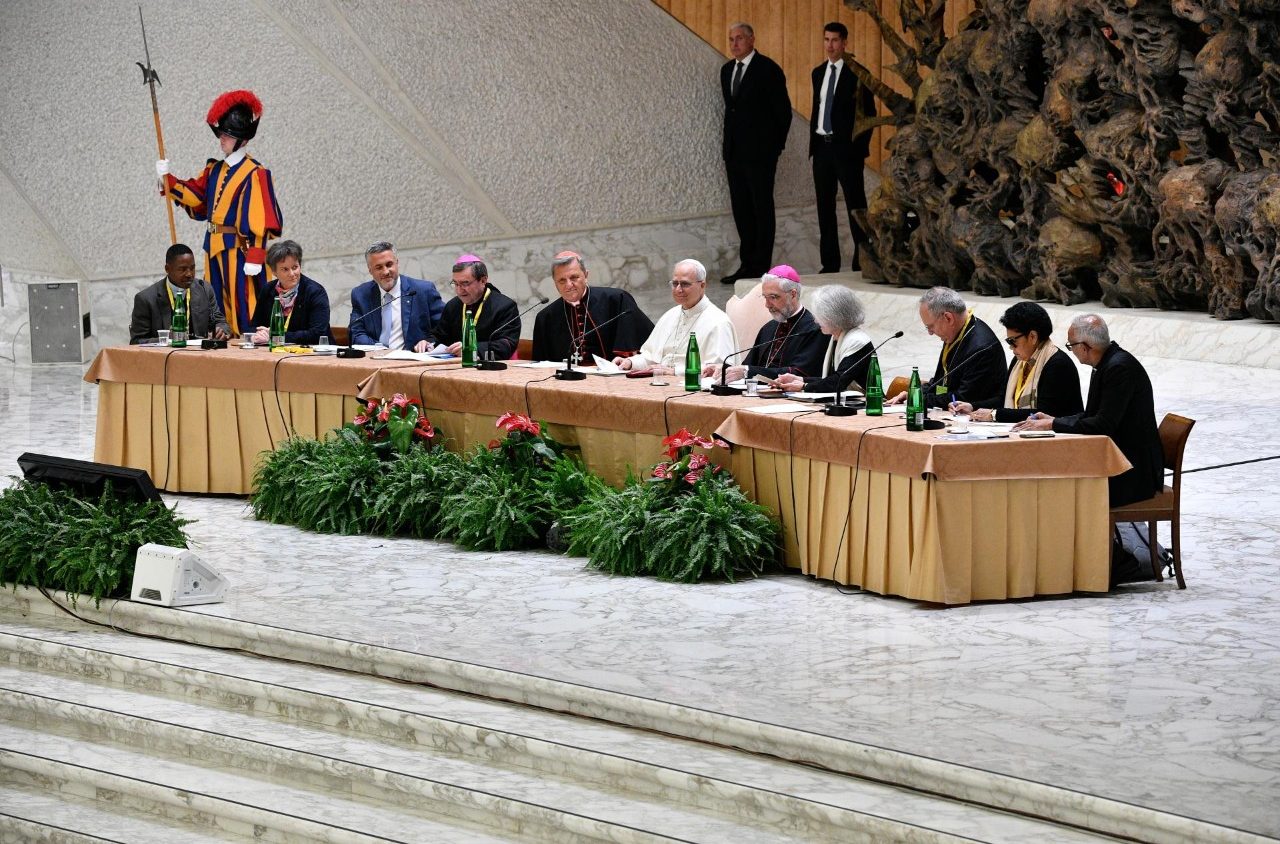Pope Leo XIV meets and dialogues with members of Synodal teams and participatory bodies here for their Jubilee pilgrimage from 24 to 26 October 2025.
Vatican News
Pope Leo XIV welcomed some two thousand members of synodal teams and participatory bodies (presbyteral councils, pastoral councils, finance councils, among others) representing diocesan/eparchial, national, and Church realms from around the world. They gathered in the Paul VI Audience Hall in the Vatican.
Friday 24 October marked the beginning of their three-day Jubilee pilgrimage. The audience with Pope Leo marked an event at a significant time in the implementation phase of the orientations that emerged in the Final Document of the XVI Ordinary General Assembly of the Synod of Bishops. The Jubilee also marked the first collective moment of the implementation phase, aimed at translating the orientations of the Final Document into pastoral and structural choices consistent with the synodal nature of the Church. At the same time, the papal audience offered on occasion to recognize the precious service carried out by these groupings and by the people who serve in them, all aimed at building of a more synodal Church within the horizon of the Jubilee’s hope.
Pope Leo, who as a Bishop in Chiclayo, Peru, and then as the Prefect of the Dicastery for Bishops, was very involved in the Synod on Synodality, listened attentively to a representation of the participants, grouped according to continent. Before they Pope arrived, they held of a series of discussions looking at their work in promoting a more synodal Church in light of the Jubilee focusing on hope, continuing the process of spiritual discernment and decision-making by listening to the Holy Spirit and one another. The synodal process has focused on “walking together” through regular gatherings, dialogue, and mutual consultation to discern pastoral decisions and address issues facing the church communities in ways that properly respond to local contexts.
Pope Leo listened to presentations regarding the synodal process from the Church reality of the world’s continents. Regarding Africa, he recalled how mission is key to the synodal church – to be a listening, missionary Church that witnesses to Christ and builds bridges across cultures and religions. He praised Africa’s gifts of youth, family, and vitality, and urged the Church to embrace diversity and foster peace, unity, and care for creation, noting also that there each local reality must be understood, respected, and that there are many ways of being Church and without imposing a single model of Church life.
After hearing a report on Oceania, the Pope expressed his hopes that the Church will continue to grow in communion through the spirit of synodality. He stressed the urgent need for concrete action to address global issues like climate change, poverty, and injustice, calling on the Church to courageously raise its voice and live out Pope Francis’s call expressed in Laudato Si’ to actively care for creation and humanity.
Regarding the Americas, Pope Leo acknowledged the divisions between countries and within societies and the need the need for synodality, listening, and dialogue in the Church and society. Ongoing formation of priests, bishops and laity, is key to this process, he noted, to keep harmony and communion within the Church.
Regarding the Middle East, Pope Leo noted how much the region is in need of hope, praising the faith, courage, and endurance of its Christians, both those who remain in their native countries and those in the diaspora, as true signs of the Holy Spirit’s presence. He also expressed his deep gratitude and admiration for the Church in Asia, recognizing its perseverance in living synodality amid linguistic, cultural, and economic challenges, and its witness of faith in largely non-Christian contexts.
